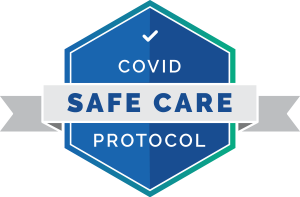Although rotator cuff tears can happen from a fall or another traumatic injury, most tears are degenerative, occurring over time. Tears that happen suddenly, such as those resulting from a fall, typically cause intense pain that may be accompanied by a snapping sensation in your shoulder, and immediate weakness in your upper arm.
Degenerative rotator cuff tears tend to be most painful when you’re trying to lift or lower your arm. Although this movement-specific pain is a common tell-tale sign of a tear, there are other common symptoms, including:
- Dull aching pain deep in the shoulder joint.
- Weakness in your arm, especially when lifting.
- Disturbed sleep, especially when lying on the affected shoulder.
- Crackling sensation during shoulder movement.
Injury to the rotator cuff occurs most often in people who repeatedly perform overhead motions in their job or sports. Other risk factors for needing a rotator cuff repair include:
- Age
- Certain sports
- Construction or manual labor jobs
- Family history
You don’t need to live in pain, and the experts and the Integrated Spine Institute can help you find relief. If you think rotator cuff repair is the right solution for you, confirm your treatment by using our free assessment below.


